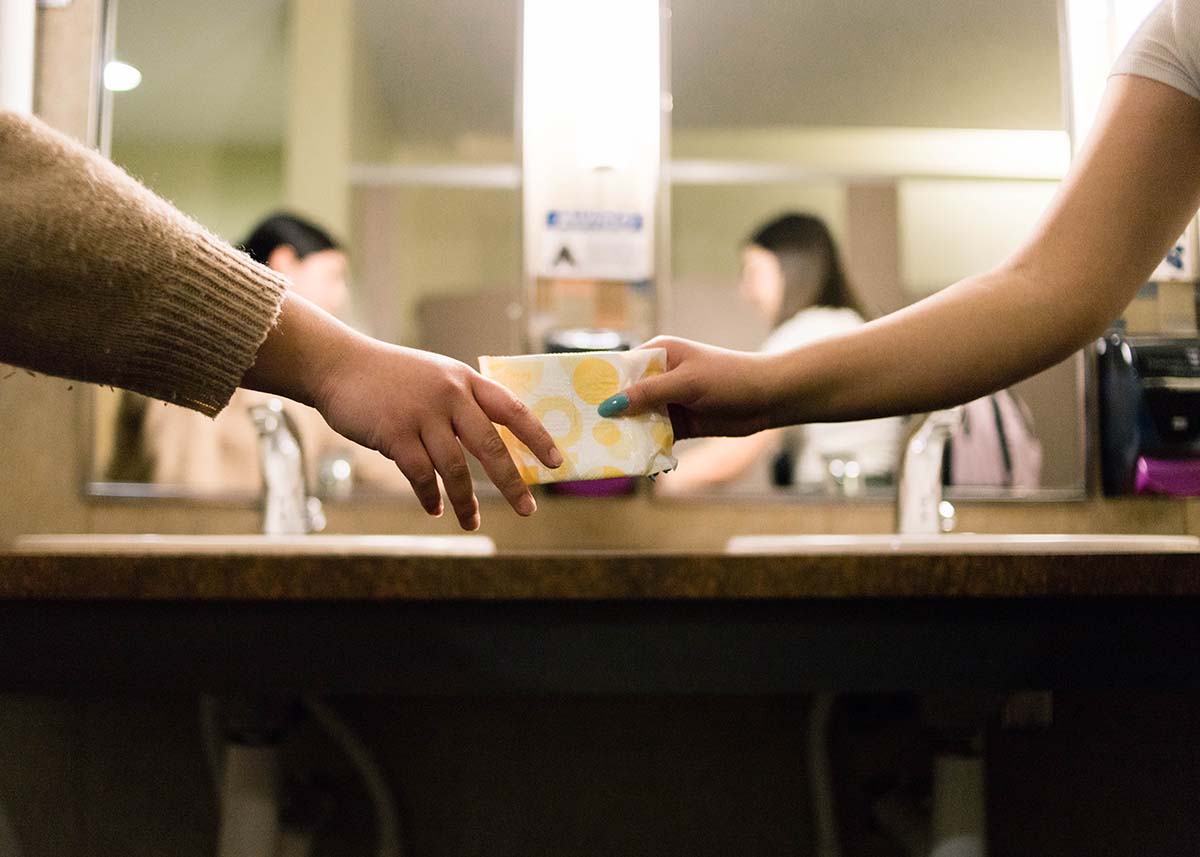Last weekend, I travelled for about 30 hours to get from my birth family that was reunited in Trento, Italy, to the family I married into that lives in Buenos Aires, Argentina. Some 25 hours into the journey, on the plane, I suddenly felt a gush in between my legs. Had I peed myself? I am aware of postpartum incontinence but I had not experienced anything like this before.
As I figured out a way to disentangle myself from the safety belt while not waking up my son (he was sleeping on me), I suddenly realised: my period had made a comeback!
In any other moment of my life, I would have immediately known that whatever was going on down there was my period. After all, my period had always been a nuisance. Once it came extra early as I was reporting on floods in El Salvador and had no way to access any sanitary products … plus, I was knee-high in water.
But between my pregnancy and breastfeeding, I’d just forgotten. I basically went period-free for almost a year and a half. I was even thinking that maybe I was done with my periods: that at age 38, after 28 years of bleeding, my body could finally take a break.
And I didn’t just get my period. It was also really painful. Throughout my life, I had always heard that period pain would get better after having a baby. My mum told me so from her own experience, and so did several other women around me and some gynecologists. Now I know that “the end of period pain after childbirth” is yet another patriarchal fairytale.
Guille, a friend who came to pick us up at the airport and was immediately informed about my bleeding status, told me to look at it differently: at least I knew that my body was doing OK after giving birth. It was a good reminder of how skewed my view on periods is. And the comment made me think of The Flow Down, a podcast about periods. In the first episode, health coach Stefanie Kleinburd makes a similar point: “Periods are a vital sign of the body,” she says. She explains that periods can reveal a lot about a woman’s health.
Despite all this information, I hate periods. And it is not hard to understand why. When I started menstruating, I was 10 years old, and nobody had told me what to expect. I didn’t have an older sister or cousin to talk to, and I was ahead of schedule in my class. One day I bled through a skirt in school and it was mortifying. Plus, my great-aunt would tell me that I could not touch or water plants during my period because they would die.
But I was lucky. Worldwide, girls miss out on school and get locked up in sheds because of their period.
Interestingly, just two years ago, my perception changed a little when I started using a menstrual cup instead of pads.
I had always found tampons uncomfortable, and pads were awful. But the cup was amazing: it was practical, and it obliged me to face my own blood. Even in rural The Gambia, with little clean water at hand, I managed to feel cleaner by wearing a cup than I would have with pads.
How much of all the pain that I feel during my period has to do with my problematic view of femininity? And how much is it a result of the amount of misunderstanding there is around periods in the world?
After all, isn’t my friend Guille right? Shouldn’t I feel relieved that my body is going back to normal, and that my pregnancy and postpartum days are over?
Whatever the answers, I know that we need to be more open about periods, and that is why I love what Jessica Weiss and Stefanie Kleinburd do in The Flow Down podcast. I know there are people who want to bleed and can’t, and those who just don’t want to bleed. But regardless of how personal menstruations can be, I think we should all be more open about it – starting from childhood.
I am curious to know: when did you first hear about periods? Do you and those around you talk about it openly – including men?
Making my journalism more memberful
Last week, I published a piece about childhood trauma, or Adverse Childhood Experiences, and for the first time I asked a member to help me proofread it. I think the result was much better because of this collaboration.
So, do you have an expertise in some aspect of the first 1,000 days – including breastfeeding, parenting, child-friendly cities, reproduction rights, early readings, neuroscience – and are you interested in being more involved in my journalistic process? You can proofread pieces I write in the future, or suggest topics I should cover. If so, please send me an email: I would love to find new ways to make my journalism more memberful.
This is my last newsletter for the year, so I wish you a great end of 2019 – even if you don’t celebrate the end of the year where you are. I surely will be celebrating, and this space will be one of the elements of 2019 I’ll cherish.
See you back here in 2020!
Until then,
Irene
This article first appeared in The Correspondent, the member-funded platform that shut down on 1 January 2021.

